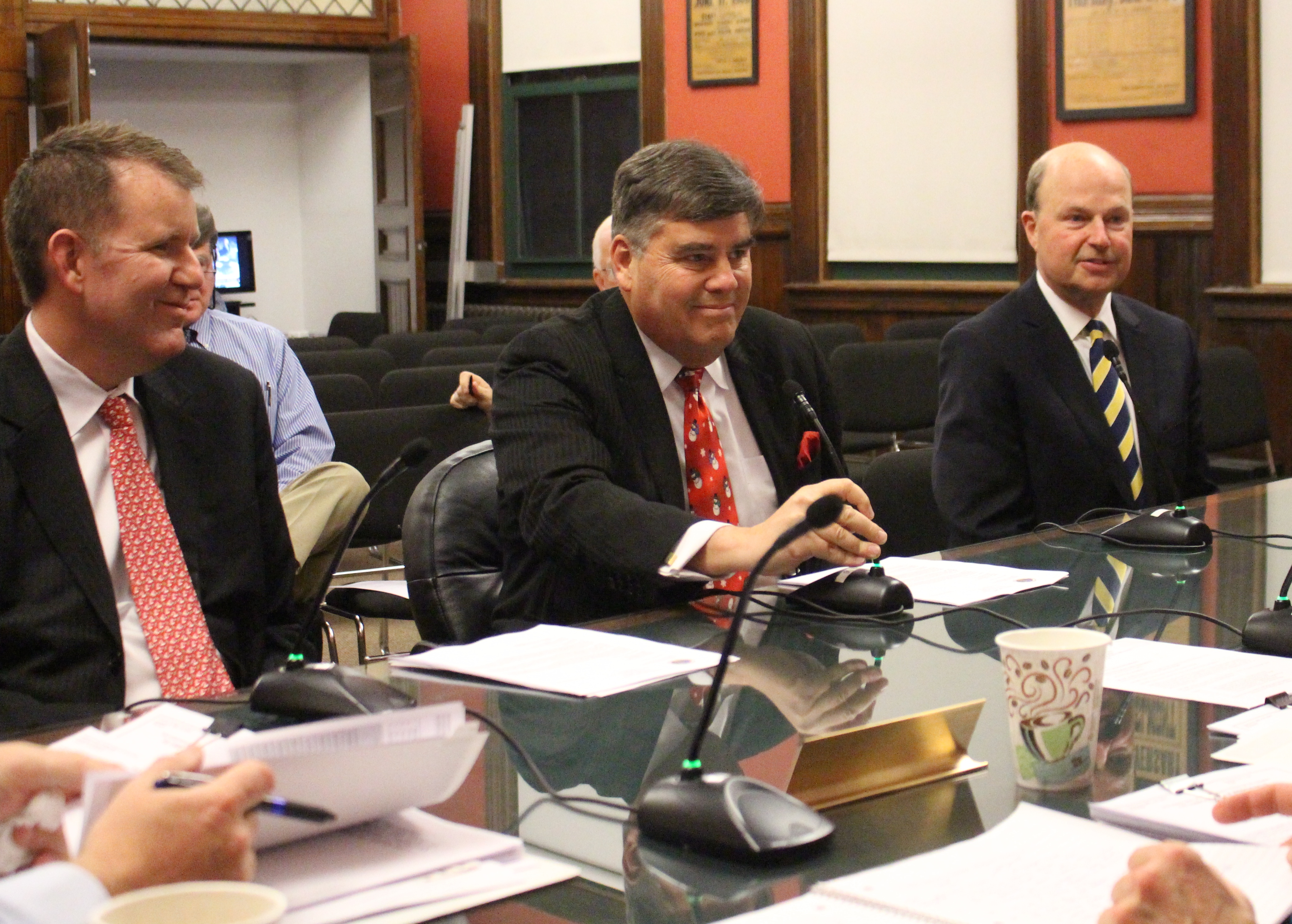Photo: Belmont’s Assessors’ (from left) Charles R. Laverty, III, Robert P. Reardon, Martin B. Millane, Jr.
Real estate taxes on the average-valued home in Belmont will increase by the least amount in the past four years after the Belmont Board of Selectmen approved at its Monday, Dec. 19 meeting the recommendation of the town’s Board of Assessors’ to up the town’s property tax rate 14 cents in 2017.
The annual tax bill for the average assessed valued property – currently $941,700 – would increase by $311 to $11,960, less than half of last year’s hike of $717 under the new tax rate of $12.70 per $1,000 of assessed value. The current rate is $12.56 per $1,000.
Under the new rate, the annual tax for a property assessed at $750,000 will be $9,525, or $2,381.25 per quarterly tax bill.
The increase in the tax rate “is a result of a slight increase in real property values with an increase in the tax levy capacity,” wrote Assessors’ Chair Robert P. Reardon in the board’s yearly report to the Selectmen.
Reardon told the Belmontonian the town data showed a significant cooling in real estate values in Belmont this year. After increases of $55,300 ($782,600 to $847,900) from 2014 to 2015 and $79,500 between 2016-15 ($847,900 to $927,400), assessed values increased just $14,300 in 2017 compared to 2016.
After years of five percent increases in average assessed values, “[y]ou expect it to pull back, and it did this year,” said Reardon, who predicts home values will continue to level off in 2017 with two interest rate hikes anticipated by the Federal Reserve.
Under the new rate, Belmont will collect $85.6 million from residential, commercial, open land and personal properties. Last fiscal year, the town raised $82.9 million in real estate taxes.
Reardon noted a healthy increase in new property growth totaling $788,000 from the construction of the Belmont Uplands and the sale of prime properties on Woodland Road provided a “nice” bump into the town’s coffers.
As with past years, the assessors’ recommended, and the selectmen agreed to a single tax classification for all properties and no real estate exemptions.
Reardon said Belmont does not have anywhere near the amount of commercial and industrial space – at a minimum 20 percent – to creating separate tax rates for residential and commercial properties. Belmont’s commercial base is 4.24 percent of the total real estate.
“People always assumes there’s money if you go with the split rate and that’s not true,” Reardon told the Belmontonian.








Leave a Review or Comment